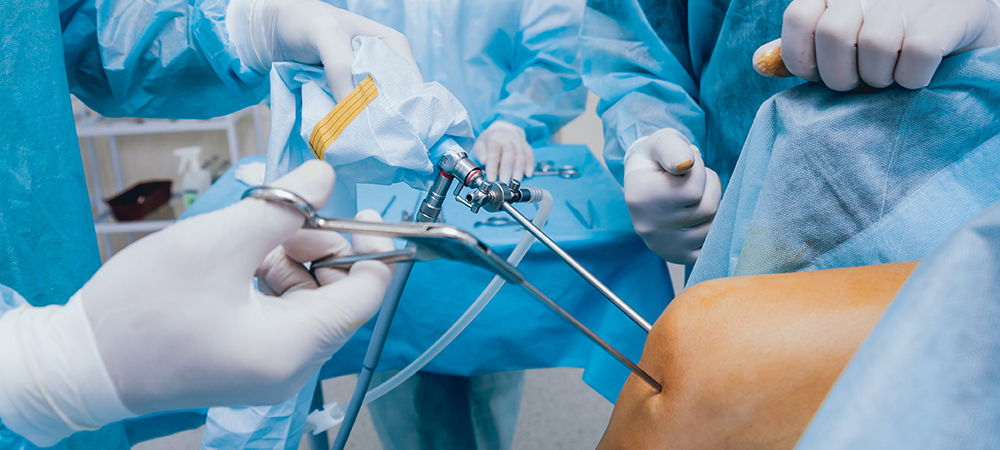State-of-the-art surgeon-guided robots had their surgical skills put to the test as researchers trialled their use in hip and knee replacement surgery for the first time at Hywel Dda University Health Board. The clinical trial was funded through the National Institute for Health and Care Research and delivered in partnership with the health board.
Joint replacement surgery is one of the most common operations performed by the NHS. The trial aimed to determine whether using robots results in better outcomes for joint replacement patients.
Professor Peter Cnudde, Consultant Orthopaedic Surgeon, said: “Robot-assisted surgery is used with great success in many procedures and can bring numerous advantages when compared to standard surgery. It is a big achievement for the team to be at the forefront of a world-leading multi-centre study like this and we’re really pleased to be able to get the clinical trial started.
“Adding robot-assisted surgery to the surgical provision available at Hywel Dda UHB will be of real benefit to our patients and I look forward to leading this important piece of work.”
In robotic-assisted hip and knee replacement surgery, a robotic arm helps prepare the bone and insert the components into a pre-programmed three-dimensional plan. Using a robot to perform the surgery is thought to enable more precise, consistent surgical techniques, which may help to reduce variation and potentially prevent poor outcomes and complications that can require additional surgery.
Delivered jointly between Warwick Medical School at the University of Warwick, University Hospitals Coventry and Warwickshire (UHCW) NHS Trust and the Royal Orthopaedic Hospital (ROH) in Birmingham, the robotic trial was tested at Hywel Dda University Health Board in early 2023.
“We are pleased that our surgeons at Hywel Dda UHB are playing a leading role in this clinical trial,” added Professor Chris Hopkins, Head of Innovation & the Tritech Institute at Hywel Dda University Health Board. “We hope that the programme will lead to improved patient outcomes and go some way in tackling pressures in our system and our planned care waiting lists. The research findings will undoubtedly help orthopaedic surgeons across our health board and across the world understand the most effective tools and technology for performing hip and knee replacement surgery and delivering excellent patient care.”
In addition to recording clinical and patient outcomes, the study included an in-depth health economic analysis to inform the NHS if this element of robot-assisted technology should be widely adopted.




